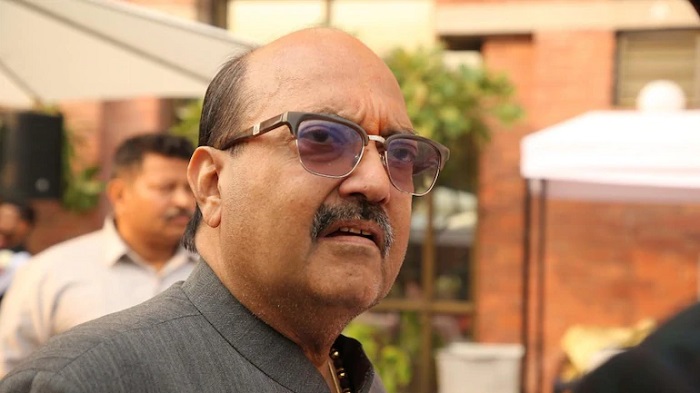New Delhi, Jan 31: Sky lovers are excited for the extraterrestrial triple treat to be witnessed in the sky today.
A super blue blood moon will be eclipsed on Wednesday from 6 PM to 9:30 PM at various locations across the country.
Sky enthusiasts have taken out their telescopes and booked a cosy place on their terrace or garden to watch the celestial spectacle.
If you want to see the whole event unfold, you should be away from tall buildings, bright lights, trees, things like that. You should have a clear view of the skies.
Lunar eclipse can be watched with naked eyes unlike solar eclipse.
This total lunar eclipse is special for three reasons: It's the third in a series of "supermoons" when the Moon will be just a day past perigee which is the closest point to Earth in it's orbit, making it appear very large and bright ; 2) It is about 14 percent bigger than usual and appearing 30 per cent brighter 3) It's the second full moon of the month, commonly known as a "blue moon". A supermoon is a particularly close full or new moon
While the Moon is in the Earth's shadow it will take on a reddish tint, known as a "blood moon."
There hasn't been a triple lineup like this since 1982, and the next won't occur until 2037.
As far as India is concerned, in 1982 on December 30, there was a lunar eclipse. Also it was second full moon of December 1982. i.e. Lunar Eclipse on Blue Moon in India occurred in 1982, said Sri N Raghunandan Kumar, Director & Founder Secretary of Planetary Society of India, Hyderabad.
The moon will rise in Delhi at 5:53:48 PM, while the partial eclipse will begin at 5:21:00 PM ( when the moon will be below horizon).The
total eclipse phase will begin at 6:21:47 PM and end at 7:37:51 PM.
The maximum eclipse will at 6:59:51 PM.
Places in north eastern states like Agartala, Aizawl, Cooch Bihar, Darjeeling, Dibrugarh, Gangtok, Guwahati, Imphal, Itanagar, Kohima, Kolkatta, Murshidabad, Shillong, Silchar, Silguri and Port Blair will appreciate all visible phases of the lunar eclipse.
The last time a lunar eclipse was visible in India occurred on August 7, 2017 which, however, was partial lunar eclipse.
And, the last time the "Blue Moon" occurred was in 2015 i.e. in July (2nd July 2015 & 31st July).
This year is astronomically very interesting as after 20 years we will have two Blue Moons in a calendar year i.e. January ( 2nd Jan & 31 Jan) 2018 and March (1st March and 31st March) 2018.
While amateur skywatchers catch the show, scientists across the world will watch the dramatic impact of the eclipse on the moon's surface— its temperature will drop as it passes into shadow.
SPACE India, an NGO which works to promote scientific temperament among children, will conduct an observation with telescopes at India Gate to promote public outreach on the night of January 31 from 6:00 to 8:30 PM. Educators will provide views of the Eclipsed Moon and elucidate the phases to people.
The NGO will also dispel myths about the chandra grahan among people.
Across the world this eclipse will be visible in the region covering North America except eastern part, Oceania, Russia, Asia, Middle East, northern Scandanavia and eastern Europe.






Comments
Hi, i think that i saw you visited my web site thus i came to
“return the favor”.I am attempting to find things to
enhance my site!I suppose its ok to use a few of your ideas!!
Add new comment